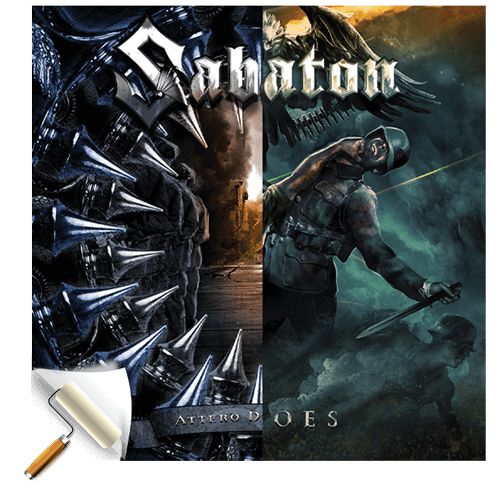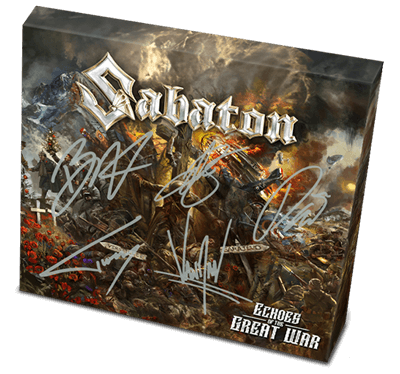Carolus Rex
The history of Sweden is in many ways the story of her kings. Since the founding of the modern Swedish state with the reign of Gustav Vasa (Gustav I of Sweden), the course was set by the will of the monarchy. Breaking free of the shackles of the mighty Denmark, Swedish kings subsequently sought to enlarge Swedish might, with dreams of a new Scandinavian Empire, a Dominium Maris Baltici, in the north of Europe and across the Baltic Sea.
Sweden realised its imperial dreams and expanded its borders towards Estonia and Livonia, and established a strong Swedish presence on the northern coastline. This, of course, attracted the attention of equally ambitious neighbours. And as it always was with the dreams of mighty dynasties and noble houses, their ambitions were soon accompanied by conflict, competition and war. Each Swedish king inherited the enemies and animosities of the past. Sweden had already crossed swords with the Polish Lithuanian Commonwealth and Russia, but it would be King Gustavus Adolphus’ involvement in the 30 Years War that set the empire on what would be a downward spiral in the long term.
The vulnerability of Sweden
Although he would be the Lion from the North, the saviour and champion of Protestantism, his religious crusade had re-shackled Sweden to a foreign cause, this time to that of German kings and dukes. With her commitment to the war in the Holy Roman Empire, Sweden missed her historical chance to build an empire on the Neva, and instead made powerful enemies. Denmark, Poland, Russia, Saxony and Brandenburg were all soon eyeing Swedish expansion with increasing suspicion, waiting for a chance to pounce. Sweden’s historical weakness was her place on the map, and the overseas possessions outside of Scandinavia were a nearly impossible task to defend. Sweden could field a mighty modern army, sure, but its population was small and the economy was reliant on highly competitive maritime trade, so the country was vulnerable. One political misstep, one fatal defeat on the battlefield, and the empire could be shaken apart. In many ways, it was a colossus on feet of clay.

The second half of the 17th century brought these weaknesses to light, as Sweden’s enemies backed her into a corner. More and more, the nation had to rely on the wisdom and courage of its kings, and the strength of its armies to keep it alive, notably King Charles XI (Karl XI), who, through ruthless land reclamation laws, revitalised the country, rebuilt the army and established a military caste that was deeply loyal to the King. With tireless ambition he saved Sweden from the brink of collapse, but in doing so, he allowed Sweden’s monarchy to become one of the most absolute in all of Europe.
The heir was born
On June 17, 1682, his heir was born. Named after his father, the young prince Karl soon proved himself to be a child full of promise and potential. His strong, stubborn character both impressed and unnerved those around him. It was said that once Karl made a promise to himself or others, he would never stray from fulfilling it. If he was set to a task, it was nearly impossible to dissuade him from achieving his goal.
Karl’s father had lived a Spartan life, one that his son would imitate. The king had rejected every sort of luxury and regarded sloth and frivolity as the greatest sins a man could have. He taught his Prince to be a merciless lion to his enemy and a generous lamb to his own people, but it would be Karl’s mother, Ulrica Leonora, who taught her son the values of honour, piety and charity. Although he would be a king to his people one day, in front of God he was just a simple man – a sinner like everyone else. Karl is said to have prayed at least twice a day and never missed a religious service in his life, even in the field.
In a way, King Karl XI was to his son what Philip II of Macedon had been to Alexander the Great. He had left his prince a strong and stable state, a full treasury and a mighty army. Karl XI died in 1697 of stomach cancer, and young Karl, just 15 years old, ascended to the throne as Karl XII. Historians do debate whether he was too young for the throne, as – like most 15 year olds – he was adventurous and impatient. Once he rode through Stockholm at breakneck speed, smashing every window with his sword. Would a few more years of guidance by his father have helped him become a better statesman?
Still, the many schemers and foreign diplomats who sought to exploit the boy king for their own advantages were soon to be deeply disappointed. Karl stared them down with an inscrutable pokerface, betraying no sign of weakness or insecurity. His natural frigid temperament and his taciturnity were his best shield in the first months of his reign. But despite his youth, Karl had clear ideas about how to run the show. Unlike other Swedish kings before him, the Estates had to swear their oath of allegiance to him, not after, but before the coronation. Karl would not ask for their obedience, nor would he make any concessions to his rule. His authority was to be absolute, and not linked to obligations or promises to those who were subjugated to him by natural order. On the day of his coronation, he ordered the members of the Parliament to walk on foot towards the ceremony. Only he, the king, clad in full royal regalia, was to be welcomed by the Church on horseback. Inside the sanctuary, Karl climbed a high throne, draped in golden cloth and scarlet damask, and took his seat on a chair of silver. By the grace of God, he was anointed King – Carolus Rex. After the sermon, Karl knelt in silent prayer. He would answer to God, as his mother had taught him, but on this earth, no one was his superior. So, he took over the burdens and responsibilities of the kingdom in God’s name, and would lead it as he saw fit.
The reign of Carolus Rex
 And absolute his reign would be. Karl would enter parliament and interrupt whenever he liked. When he was present, others were only allowed to speak in whispers, and Karl had no qualms about openly reprimanding his chancellor. If it came to his ears that someone had refused his commands or spoken ill of his reign, his ire could be merciless. Even from the farthest corners of the country, dissidents were dragged back to Stockholm in chains, and if found guilty, were sentenced to life in prison or the firing squad. It seemed like Sweden was in for a rough ride, with absolute power manifesting in the hands of the boy king who wasn’t particularly fond of opposition. But despite his harsh demeanour, Karl was not the “evil” tyrant that he is often portrayed as. Quite the contrary. His character had a humane side, one in line with the ideals of enlightenment. He forbade torture and vowed to judge those around him based on personal merit. He demanded that every Swede do his duty to the state, but every bit of hardship beyond that was forbidden. Karl treated those loyal to him with hearty respect and valued their commitment to him with benevolence and rewarding gratitude.
And absolute his reign would be. Karl would enter parliament and interrupt whenever he liked. When he was present, others were only allowed to speak in whispers, and Karl had no qualms about openly reprimanding his chancellor. If it came to his ears that someone had refused his commands or spoken ill of his reign, his ire could be merciless. Even from the farthest corners of the country, dissidents were dragged back to Stockholm in chains, and if found guilty, were sentenced to life in prison or the firing squad. It seemed like Sweden was in for a rough ride, with absolute power manifesting in the hands of the boy king who wasn’t particularly fond of opposition. But despite his harsh demeanour, Karl was not the “evil” tyrant that he is often portrayed as. Quite the contrary. His character had a humane side, one in line with the ideals of enlightenment. He forbade torture and vowed to judge those around him based on personal merit. He demanded that every Swede do his duty to the state, but every bit of hardship beyond that was forbidden. Karl treated those loyal to him with hearty respect and valued their commitment to him with benevolence and rewarding gratitude.
The first year of his reign had sobered the young king. Karl, who had romanticised the duties of the monarchy, grew tired of the endless line of ambassadors and ministers constantly pleading for his judgement. The domestic, peaceful life of everyday state affairs had no appeal to him. And while he cared deeply for the wellbeing of his mother and sister, he otherwise did not seek the company of women. Instead, Karl sought adventure, danger and hardship. He was a born soldier and dreamed of greatness; of the glory that his ancestors had brought to Sweden; and of a chance to prove himself.
Dark clouds of war
At the turn of the 18th century, the dark clouds of war gathered over Europe once more. In the south, dynasties were arming themselves for the coming Spanish War of Succession. In the north, the old enemy, Denmark, was forging alliances with Poland and Russia, preparing to invade Holstein. Wherever Sweden turned, it would find enemies to fight, and Karl eyed Europe with the impatient gaze of a hungry lion. War was an opportunity for Sweden to return to greatness by rightful conquest.
In February 1700, Saxon troops marched into Livonia, the Danes invaded Holstein, and Russia set its sights on the Baltic provinces. What would be called the Great Northern War began.
Karl heard of the news during a bear hunt. At once, he returned to Stockholm, entered parliament, and declared: “I have resolved never to begin an unrighteous war. But I have also resolved never to finish a righteous war until I have utterly crushed my enemies.”
With these words, Carolus Rex set out to fight his enemies and decide Sweden’s future on the battlefield. The young king, absolute in his power, was to confront a coalition of enemies. His army was one of the best in Europe, a deadly tool in the hands of a skilful commander, but to safeguard the Swedish Empire, it was not enough for Karl to win a battle or two. He had to improve Sweden’s strategic position, or it would be all for naught. With this in mind, he crossed the Sound like his personal Rubicon. There would be no turning back.
King Charles XII of Sweden inspired our song ‘ Carolus Rex‘, which is featured on our album Carolus Rex. Take a look at the lyrics we wrote here.
If you’re interested in a more visual interpretation of the above story, watch our Sabaton History episode, Carolus Rex – Charles XII of Sweden:





















